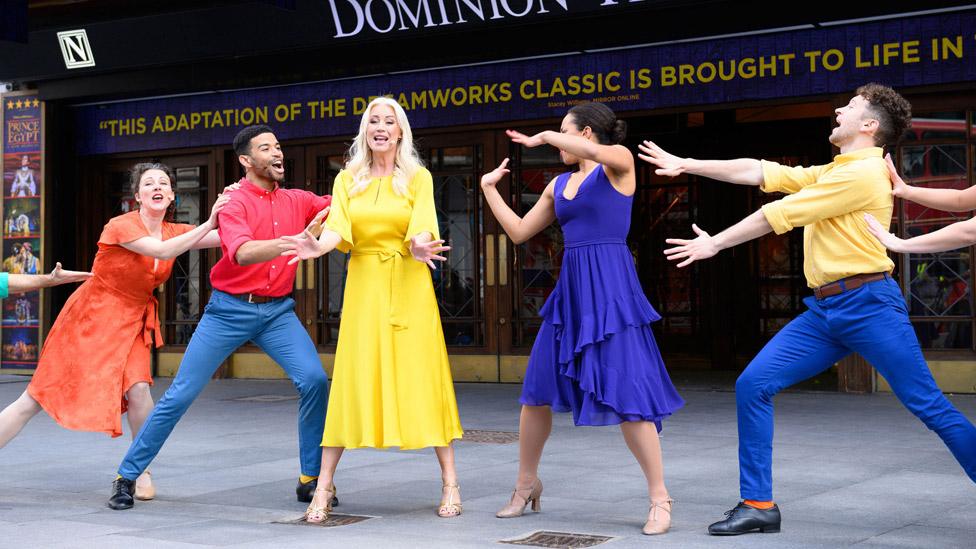Covid: Delay to full reopening a hammer blow, says live event sector
- Published
London’s Cuckoo Club 'facing extinction' after lockdown easing delay
Live music, theatre and other events have been dealt a "hammer blow" by a four-week delay to the final stage of easing lockdown restrictions in England, industry figures have said.
The move means the capacity of venues will remain limited by the requirements around social distancing.
The entertainment sector has appealed for urgent financial support.
The Society of London Theatre said the decision would "have serious implications for many theatres".
And the Night Time Industries Association said the PM had "switched the lights off for an entire sector".
Boris Johnson told a press conference on Monday the delay to lifting most remaining curbs on social contact was necessary to avoid "a real possibility that the virus will outrun the vaccines and that thousands more deaths would ensue which could otherwise have been avoided".
The government's planned date for lifting restrictions - 21 June - has now been pushed back until 19 July, amid rising Covid cases driven by the more transmissible Delta variant.
But the prime minister said there would be a review after two weeks and he was "confident" the delay would not need to be longer than four weeks.
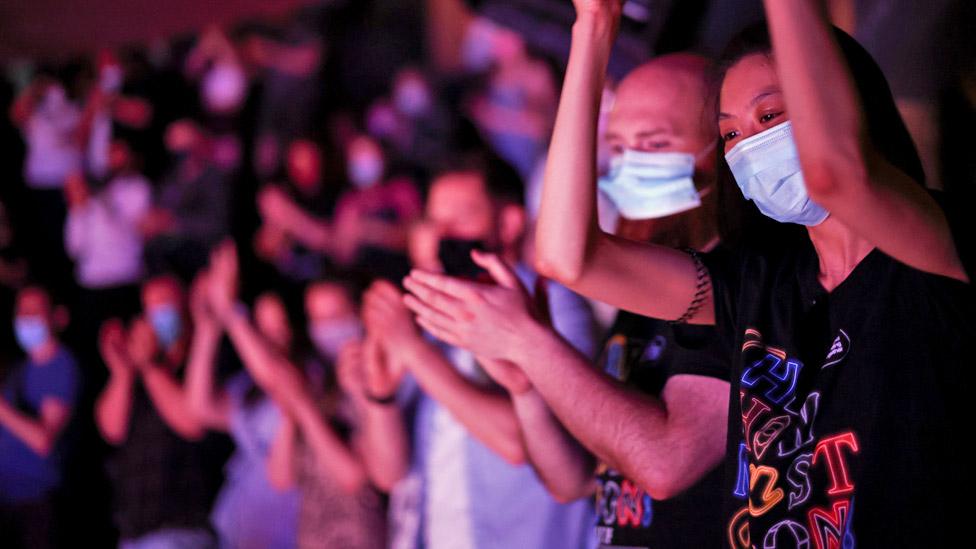
Fans recently attended a West End performance titled The Show Must Go On
Many in the entertainment industry said they understood the need for the delay, but called for further government support.
Mark Davyd, chief executive of the Music Venues Trust, said the government should take "swift and robust" action to prevent hundreds of potential grassroots music venue closures.
He said this should include "getting financial support to people who desperately need it, extending repayment options for loans, cancelling business rates and extending support schemes such as furlough and SEISS [the self-employment income support scheme]".
The Society of London Theatre and UK Theatre said there were "thousands of jobs hanging in the balance" as producers make the "difficult decision" of whether to start rehearsals for shows that are due to open later this summer.
"Particularly at risk are large-scale commercial productions, which have received little or no Cultural Recovery Fund support and cannot survive under social distancing," a statement said.
'West End farce'
Trafalgar Entertainment's Sir Howard Panter and Dame Rosemary Squire, who have two major musicals due to open in London in late July, said the delay was "yet another bungle" from the government.
"The confusion and muddled messages are reminiscent of a West End farce," they said in a statement.
Meanwhile, UK Cinema Association said it was "mindful of the rationale behind today's decision" and acknowledged many cinemas "can still operate viably at below full occupancy", but that they would "continue to face significant challenges as they look to recover from the enormous financial impacts of Covid".
Lucy Noble, chair of the National Arenas Association, said the delay was "devastating", while trade association Live said the industry had been left "in limbo".
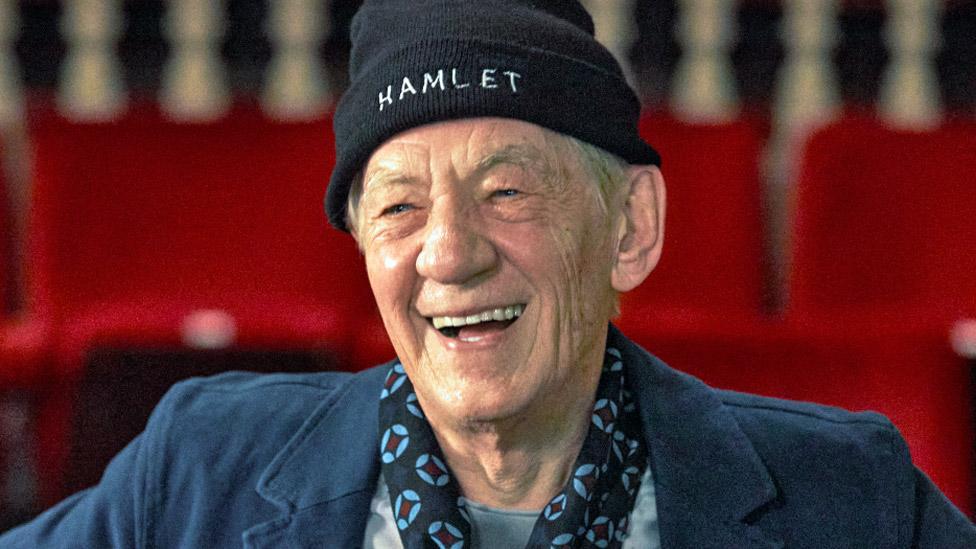
Sir Ian McKellen, who is due to star in Hamlet from 21 June, said the fact theatres cannot play to full houses was "very, very frustrating".
"Thank goodness I'm not the producer, who must be wondering what to do, because you sold an awful lot of tickets and people may have to shift to other dates," he told the BBC's The One Show.
"I think they were warned in advance that might happen.
"It's a lot of trouble, but there's no doubt, a week today, we open up Hamlet at the Theatre Royal Windsor as planned, but it will be social distancing for a little bit longer than we'd hoped."
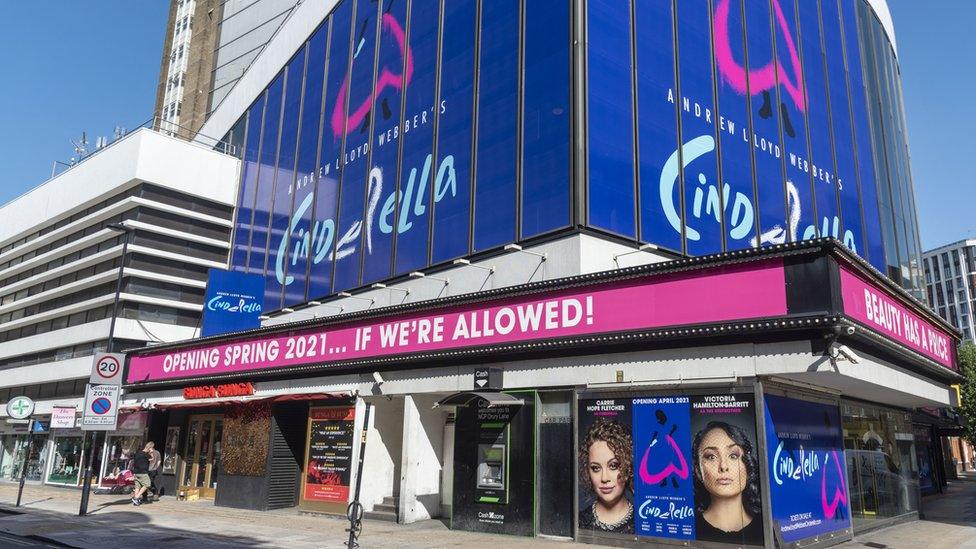
Andrew Lloyd Webber has pledged to open Cinderella at the Gillian Lynne Theatre in London
However, there could be hope for some in the sector as fifteen coronavirus pilot events are to continue as planned before 19 July, including some arts and music performances.
On Monday, the PM suggested Andrew Lloyd Webber's new musical Cinderella may be able to join the scheme, after the composer said he was prepared to be arrested if he couldn't open as planned on 25 June.
"I think we're in talks to with him to try to make it work and we'll do whatever we can to be helpful," the prime minister said.
But that came as a surprise to Lord Lloyd-Webber. "My goal is, and will always be, to fight for the full and safe reopening of theatre and live music venues up and down the country," he said.
"I was pleased and surprised to hear the prime minister mention Cinderella as part of his announcement today, but I can't comment further on the proposed pilot until I know more about the scheme."
Cancelled festivals
A string of music festivals planned for June and July were cancelled or postponed after Mr Johnson's announcement.
They included the Black Deer festival in Kent, which was due to be headlined by Van Morrison at the end of June.
Organisers of the Noisily Festival in Leicestershire wrote in a statement, external: "After pouring our heart and soul into the event on a wing and a prayer - hoping against hope - to have all of that dashed again is beyond devastating."
Alex Hutchinson, who runs the Kubix festival in Sunderland, said his event would no longer take place in early July.
"I think people forget there are millions of people behind these closed industries, either directly or in the supply chains, who at the minute can't even give a definite date to be able to resume making a living," he told BBC Radio 5 Live.
Government support
A government spokesperson said: "We understand a delay to full reopening is challenging for live events, and we will be helping our creative industries through it. We have made £2bn available through the biggest arts funding package in history and the final funding round of £300m will be announced shortly.
"Clubs and venues have also benefited from restart grants worth £18,000 each, and there's nearly £1bn available in further discretionary grants local authorities still have to pay out.
"The furlough scheme and VAT cut is in place until September and eligible businesses will also continue to benefit from business rates relief of 75% over the year."
- Published14 June 2021
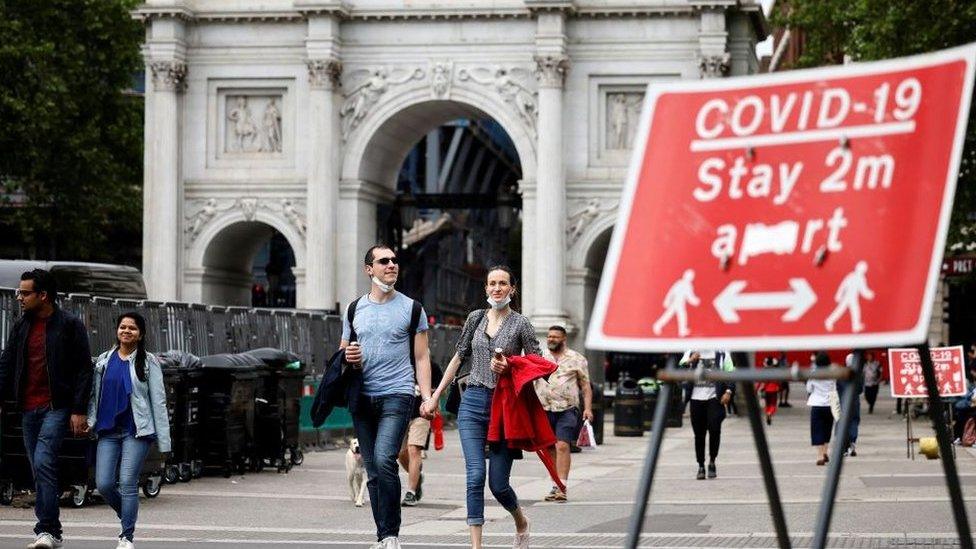
- Published14 June 2021
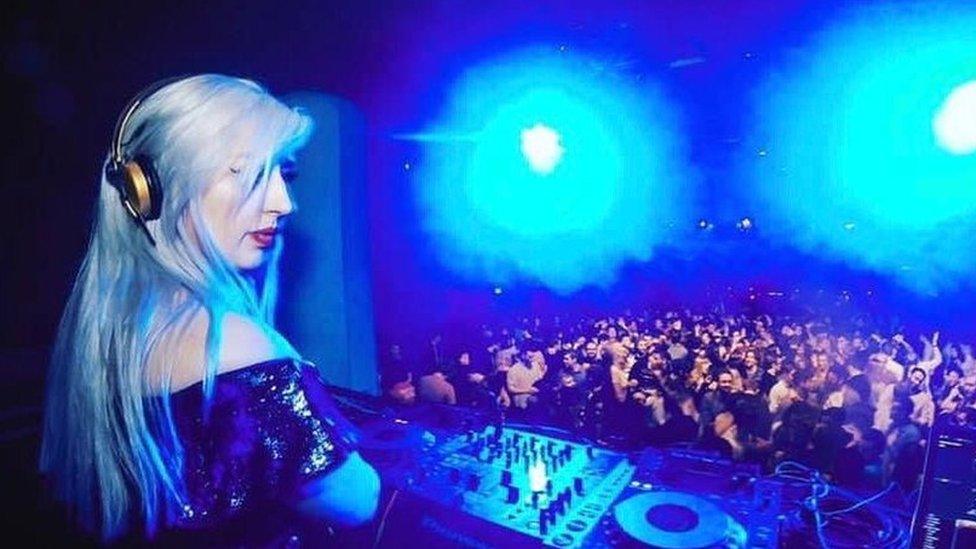
- Published14 June 2021
- Published1 July 2022

- Published9 June 2021
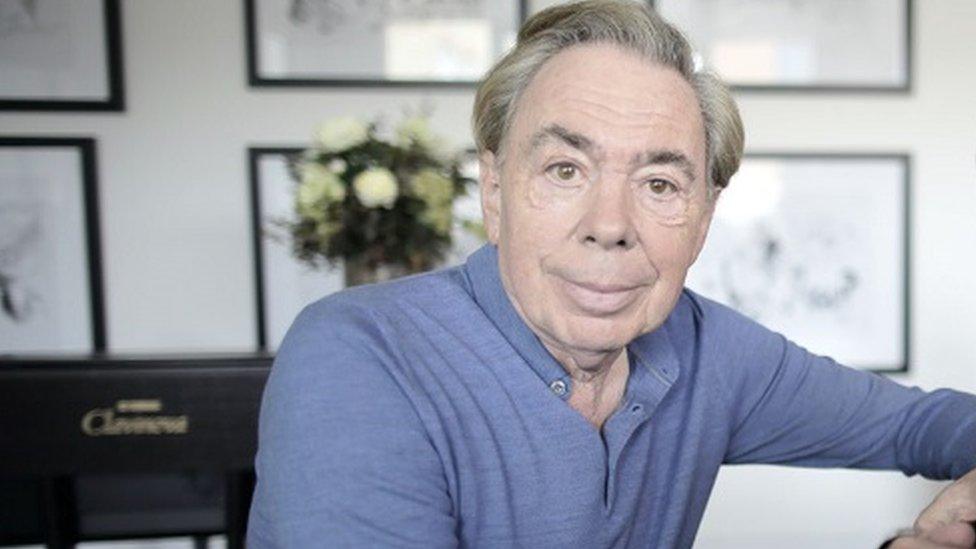
- Published15 May 2021
